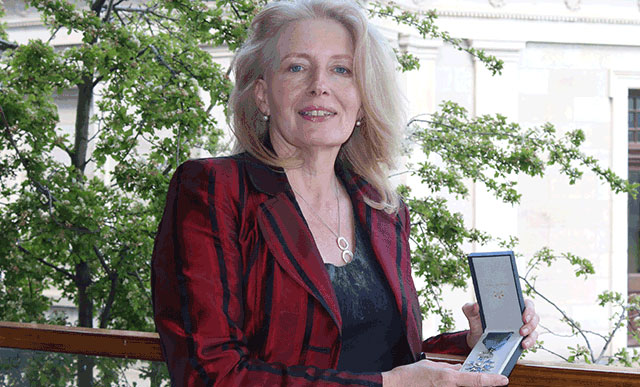Prof Sarah Alyn-Stacey has called on the Fellows to back the removal of the interview process for the Provost elections from the statutes.
In a statement – seen by The University Times, Alyn-Stacey said that “we must leave the election fairly and plainly in the hands of the electorate as befit a university of our ancient standing and liberal traditions; we must trust to and respect the intelligence and independent spirit of its academic staff and students to elect the Provost they want, free of unmandated managerialist intervention”.
“Unfortunately”, she added, “it is this essential freedom of the electorate, together with diversity and respect for the Statutes, which is the major casualty of the present election”.
In a controversial move earlier this year, the Interview Committee disqualified Alyn-Stacey from running to be the next Provost.
At the time, this newspaper reported that Alyn-Stacey had been denied entry to this year’s Provost election, after a process that she said had “blurred” the distinction between an election and an appointment and given HR a “crucial role” in who will be the next Provost.
In a statement to her nominators – seen by this newspaper – Alyn-Stacey was highly critical of the interview committee and HR. She alleged that they “took it upon themselves to apply a different test from the statutorily-mandated prima facie test”.
In today’s statement, Alyn-Stacey said that the feedback form she received from the Interview Committee was “wholly silent on the principle of prima facie evidence and it reflects instead the use of criteria geared towards a very specific and narrow management style, grounded in an unspecified scale of magnitude”.
She argued that the new criteria were “arbitrarily applied” and “do not even correspond to the twelve functions of the Provost enumerated in the Statutes”, adding that the criteria “had not been approved by Board and were unknown even to the election’s Organising Committee”.
Alyn-Stacey also said that she had never been told by the Interview Committee, Appeals Committee, or the Visitors that she did not have a prima facie case for running in the election.
“The failure to engage with this prima facie test is mystifying and unhelpful”, she said. “It would seem then that I have not been disqualified on Statutory grounds (the only proper grounds) but on non-mandated grounds, established by HR, implemented by the Interview Committee and stood over by the Appeals Committee and the Visitors.”
Alyn-Stacey also said that the Vistors’ ruling “raises important questions about how the principle of democracy, not just in Trinity but in all third-level institutions in Ireland, operates in relation to managerialism”.
“These questions are raised at an important juncture in the history of third-level education: an imminent reform of the governance structures is on the horizon on the basis that there has been damaging internal mismanagement.”
“Whilst the management of the current election supports this negative opinion, I would say that this mismanagement reflects a particular culture and is emphatically not a consequence of the structure of Trinity’s Board.”
“I remain actively opposed therefore to the Government’s proposed reform of our Board (on the grounds that broad-spectrum Boards permit greater representation of the constituencies making up a third-level institution), but what has happened with this election may well undermine the credibility of that defence.”
Last month, this newspaper reported that the government will this year consider passing a bill that would give the Minister for Higher Education the power to suspend and replace the governing body of state-funded universities, if there are very serious concerns about how the institution is operating.
The bill – which will undergo pre-legislative scrutiny this spring – will grant the government sweeping new powers to manage universities and will replace the Higher Education Authority Act 1971.
Under the new bill, the government will also propose to reduce the size of college board to “provide for strong internal governance”, according to an outline of the bill provided to this newspaper by the Department of Higher Education.
Trinity did not provide a comment by the time of publication.







